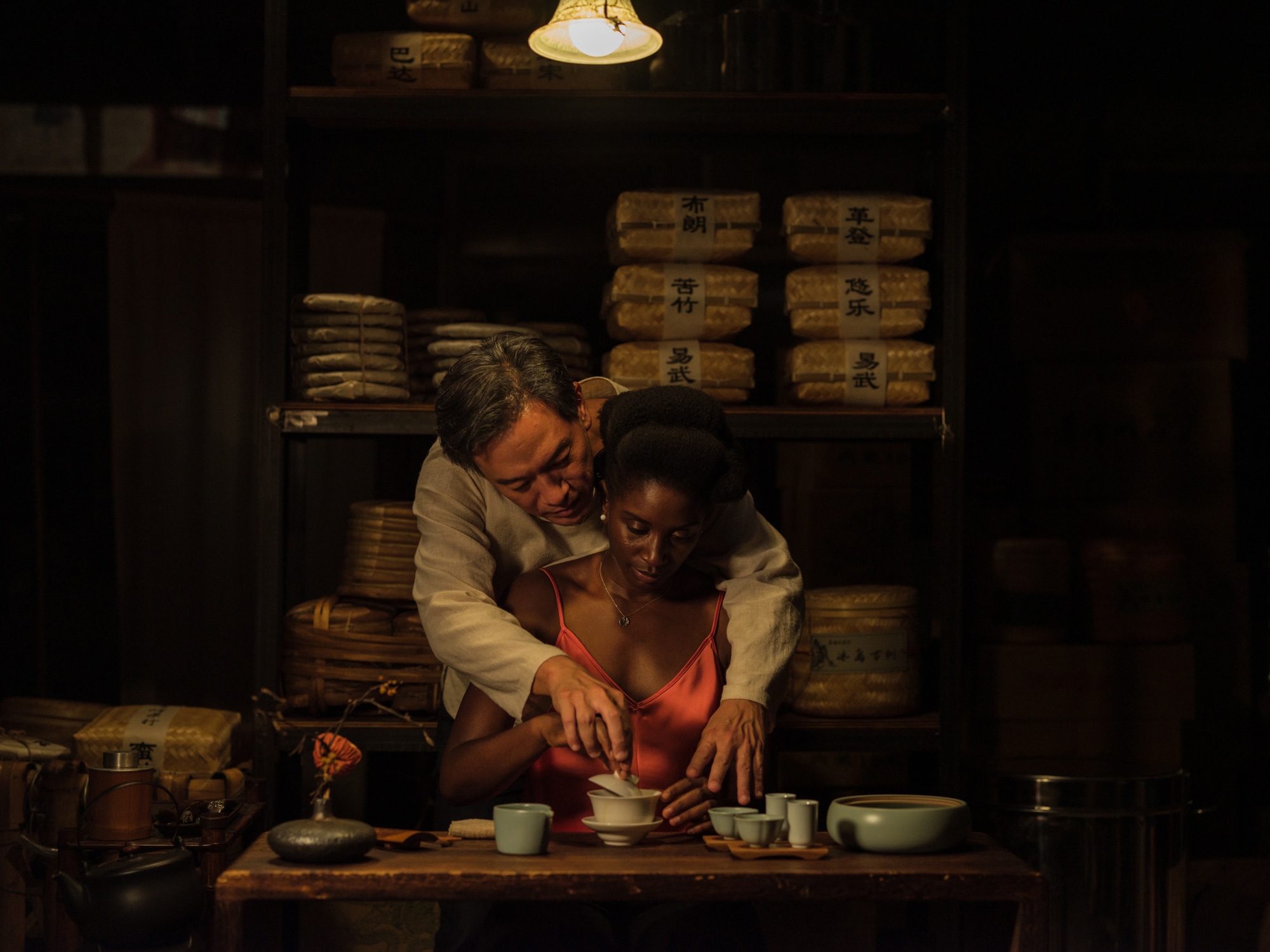


Dir: Abderrahmane Sissako | Drama 96′
Black Tea, Abderrahmane Sissako’s first narrative feature in a decade, feels like one of those amateurish student films assembled from a series of ideas (jotted down by Sissako and his co-writer Kessen Fatoumata Tall) that doesn’t quite come together. Formally known as The Perfumed Hill it plays out like an episode from a TV soap in scenes shot and then cobbled together without any regard for tonal integrity or even dramatic content.
Is it a female empowerment story: clearly no, judging by the storyline and absurd final reveal. The whole thing relies on the flimsy chemistry between the two unlikely central characters, who nevertheless make for a stunning duo, in the shape of Chang Han as a Chinese tea trader called Cai and Nina Melo, his latest apprentice Aya, who hails from The Ivory Coast.
In a bizarre opening scene Aya says a resounding ‘no’ to her ‘husband to be’ in one of those mass registry office weddings back in her homeland. Suddenly, and inexplicably, she finds herself in Guangzhou, China speaking fluent Mandarin and brushing up on the delicate art of tea-tasting at a shop owned by Cai who is unhappily married to Ying (Wu Ke-Xi). The two have a teenage son, Li-Ben (Michael Chang) and Cai also has a girl called Eva from a previous relationship.
When the scene shifts to the Guangzhou, Aya is already ensconced in the business, judging by her glorified position as assistant to Cai. When not working she spends the day prancing around in the local shopkeeping community. There are other African immigrants (who all speak fluent Mandarin) and who indulge in trite exchanges, touch up her hairdo and smile reverentially as her as if she’s a member of royalty. It soon emerges she has jumped out of the frying pan and into the fire relationship-wise as Cai is clearly not really available. He even asks her to sit alone in his bedroom while he entertains his entire family to dinner, including a rather traditional old grandfather who makes racist comments. There’s a suggestion of a lesbian frisson with Ying and Aya, but it stays in Ying’s fantasy world. And that’s just about it.
The film clearly takes its name from Nina Simone’s eponymous song, and is beautiful to look at with DP Aymerick Pilarski’s vibrant visuals capturing colourful hillside villages and tea plantations. There are some original elements here, but the lack of a meaningful narrative arc and no real drama to speak of makes this a vacuous follow-up to the director’s stunning third feature Timbuktu (2014). @MeredithTaylor
IN COMPEITITON | BERLINALE 2024
.